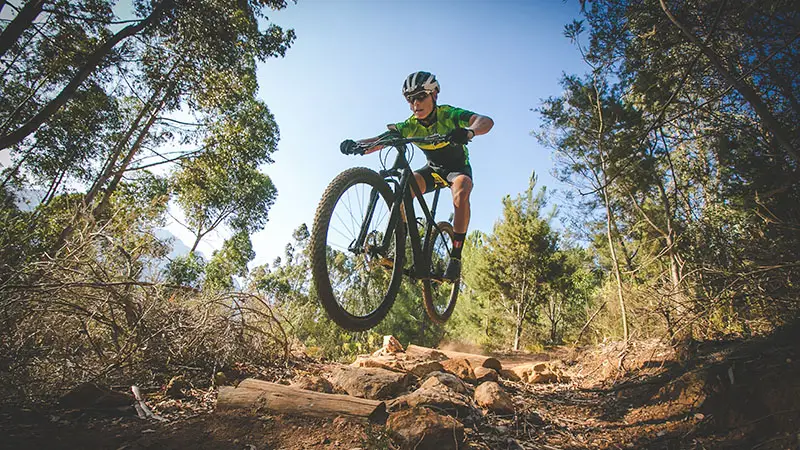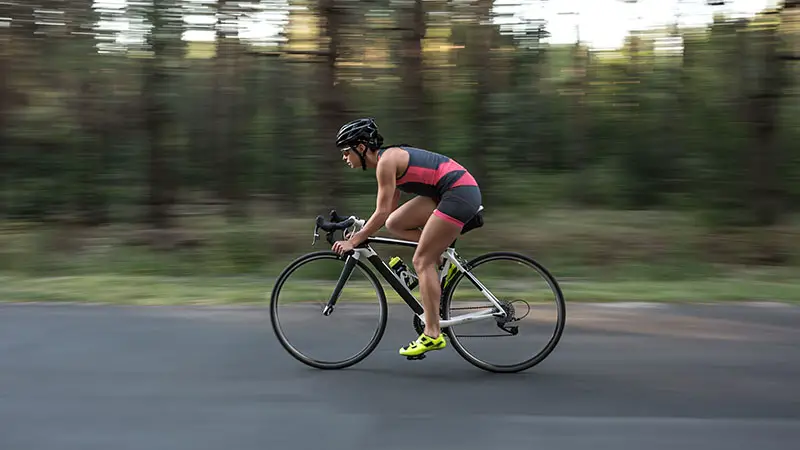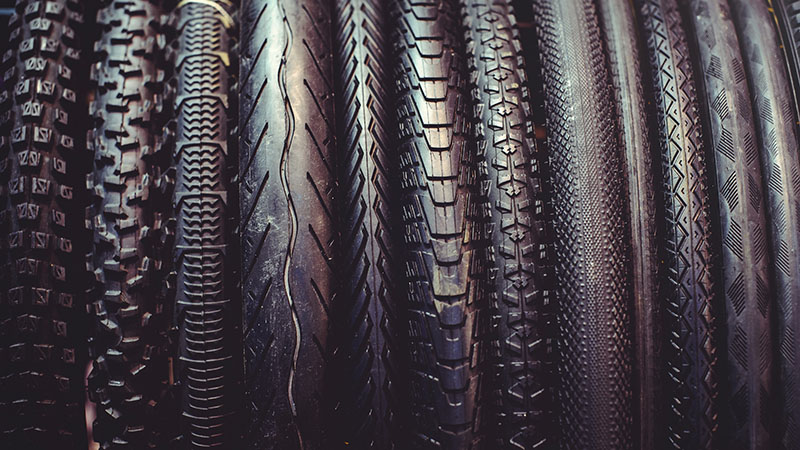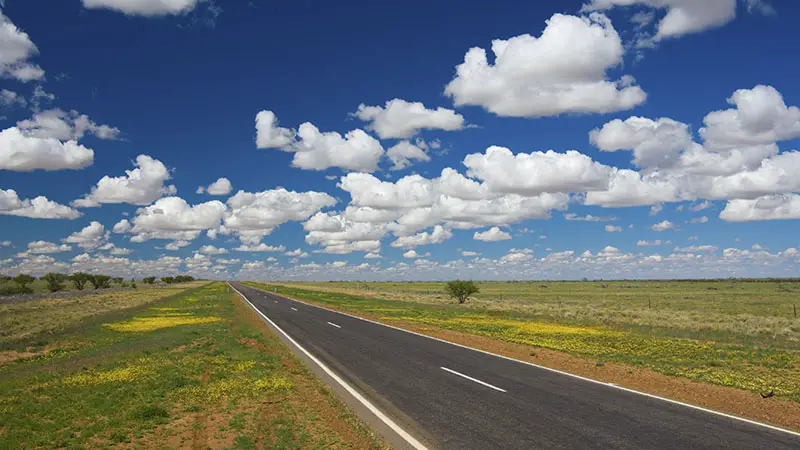Contents
Mountain Bike vs Road Bike Speed
Mountain bikes may offer more variety, more magnificent views, and they may be more affordable overall, but road bikes have been proven time and time again to be faster. Some may argue that bikes are only as fast as the person who is pedaling. That may be a fantastic point, however, there are certain features in road bikes that make them more conducive to being faster than mountain bikes.
As a matter of fact, we have found that road bikes, on average, perform at a speed 10-30% faster than mountain bikes overall. When compared with the same output and terrain, road bikes still win the debate of mountain bike vs road bike speed with an out-performance of approximately 15%. Meaning, no matter the conditions or variables, road bikes win the speed game.
Let’s say you are riding a road bike on the same flat, smooth-surfaced road, going the same speed as someone riding a mountain bike, you will complete a mile in about 4 minutes and 35 seconds while the mountain biker will complete it in 5 minutes and 30 seconds. Of course, this isn’t an exact science, but you get the picture!
How Fast are Mountain Bikes?

Yes, we now know that for mountain bike vs road bike speed, road bikes win. But how fast can you actually go on mountain bikes? With mountain biking, you’re going to run into a lot of different variables and their effect on your speed, but professional or semi-professional mountain bikers have been found to ride on an average of 9 miles per hour.
In mountain bikers going downhill, you’ll find completely different numbers. In 2012, they looked at “downhillers” and discovered that they averaged 20 miles per hour traveling downhill on mountain bikes. Of course, this is starkly different from the average speed of professionals, but you’ve also got to consider the infamous phrase, “What goes up, must come down,” and apply it to mountain bike vs road bike speed.
If you’re curious about the top-speed a mountain bike could go, then we’ll have to look towards the Guinness Book of World Records! In 2017, Eric Barone set the record for the fastest mountain bike ride in history, reaching 141 miles per hour riding down a snow-laden mountain!
How Fast are Road Bikes?

Overall, most cyclists travel an average of 15 miles per hour with a moderate level of experience. Professionals, however, can travel even faster at 25 miles per hour, which is considerably more than the 9 miles per hour average of pros/semi-pros for mountain biking.
For world records and top speeds, cyclist Denise Mueller-Korenek wins it all. Though her journey differed from that of Mr. Barone’s mountain bike ride, Denise reached a top speed of 183 miles per hour on the road. It’s important to note that she could reach this speed with the help of a race car, but even so – it was with a road bike!
5 Reasons Road Bikes are Faster
As we’ve established, road bikes are faster. But, what exactly is it about these types of bikes that makes them that much more inclined for those who have the need for speed? Well, there are some factors that include the bike and its makeup, while there are other external factors that can all come into play when looking at mountain bike vs road bike speed.
1. Biking Position
One reason road bikes are faster has more to do with how you ride it rather than the ride itself. Your riding position when you’re on a mountain bike is typically upright with your arms stretched out straight, sometimes with a slight bend in your elbow. With road biking, you hunch over, arms bent at a 90-degree angle, making you more aerodynamic and faster.
When cycling upright, like most do with mountain biking, could cause you to be two times slower than a road biking position. So, when you’re thinking about mountain bike vs road bike speed, your positioning makes a big impact.
2. Bike Weight

By design, mountain bikes need to be more rugged. They are made to withstand a variety of terrains, elevation levels, and all kinds of outdoor and off-road elements. Because of this, they are going to be significantly heavier than road bikes.
Most mountain bikes weigh in fully equipped at about 30 pounds whereas road bikes weigh in around the 17 pound mark. That’s a big difference to consider when you are assessing the bikes for their speed. The more aerodynamic and lighter bikes are, the faster they will typically be.
Now, I’m not saying that all mountain bikes weigh more than all road bikes. Sometimes, you will definitely see bikes coming in around the same weight! However, it is important to point out that if you want a mountain bike that weighs less and can go faster, then you will probably pay more for it. Some parts needed for mountain bikes that come in lighter materials can have a pretty steep price tag. So, of course you can get lighter mountain bikes, but the typical, more affordable ones will definitely weigh more than their road bike counterparts.
3. Tires

Tires can play a crucial role in comparing mountain bike vs road bike speed. Most people use the tires to recognize the difference between the two bikes, as most manufacturers equip mountain bikes with thicker tires and road bikes have those infamously skinny and slim tires. Even when thinking about the different tires, there are particular qualities of the different types that can affect the speed…
- Width
Mountain bike tires are significantly wider than road bike tires. They are designed to cover more surface area on the ground to promote balance on the varying terrains it encounters. Because it has more contact with the ground, it is going to be more sturdy and slower. However, road bike tires are designed to have as little friction with the ground as possible. They are incredibly thin and allow riders to ride more quickly through streets and flat roads.
- Tread
Mountain bikes not only have wider tires, but they also have bigger treads. The larger the tread is, the better it is to ride on dirt paths and trails, but the slower it is to ride. Conversely, road bikes have significantly smaller tread to increase speed, reduce friction and surface area coverage.
- Pressure
Last, when we’re thinking about the different factors of tires that make road bikes faster than mountain bikes, we’ve got to think about the tire pressure. The more aired up your tires are, the less surface area your tire is covering and the more the tire holds its shape. Because of this, you can reduce tire deflection.
Typically, mountain bikes have less tire pressure to cover more surface area and allow for the movements on the terrain, making them more difficult to pedal and slower.
4. Terrain

One of the biggest reasons that road bikes are faster is the terrain in which we ride them. As I’ve been touching on throughout this article, we ride mountain bikes off the road. You ride them on trails, through the countryside, up and down mountains, on tracks, and all kinds of places. The terrain is a lot more difficult to maneuver than biking on paved roads.
Of course, road biking is difficult in its own way. You will still deal with elevation and other variables like vehicles on the road that can inhibit your speed, but the terrain is simply a lot easier to navigate than mountain biking, thus making you faster.
5. Purpose
Coupled with the terrain, the general purpose of the two different bikes lends one to be faster than the other. From the design to how you ride it and the terrain in which you are riding, road bikes are supposed to be faster. Manufacturers and companies focus on speed when designing road bikes, making adjustments and the materials lighter to help riders achieve faster and safer speeds.
With mountain bikes, however, the purpose isn’t to be the fastest bike on the road. They are designed to provide a safe experience off-road, focusing on tires that can give with the varying terrains, materials that are more sturdy with the quick changes in direction and elevation. Their purpose isn’t to be the fastest.
